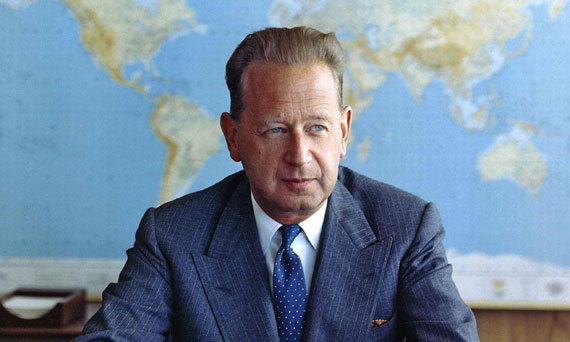How the UN Secretary-General was killed in a 1961 plane crash
- Jon Lindström is preparing a political thriller about the murder of Sweden’s Dag Hammarskjöld and the subsequent cover-up by African authorities

The death of Swedish United Nations Secretary-General Dag Hammarskjöld and his team in a plane crash on 18 September 1961 near Ndola (Northern Rhodesia, now Zambia) in Central Africa, en route to ceasefire negotiations during the Congo crisis, will inspire a new Swedish political thriller, currently being scripted by Swedish director Jon Lindström and his writer wife, Rita Holst.
For 20 years, they had been planning a traditional biopic on the Swedish diplomat, economist and author, whom US President John F Kennedy named “the greatest statesman of our century” and who was posthumously awarded the Nobel Peace Prize. The UN’s second Secretary-General was 47 when he died.
UK author Susan Williams’ 2011 book Who Killed Hammarskjöld?, which unearthed a mass of new and hitherto secret documentary and photographic evidence, has revived the project, which is being backed by the Swedish Film Institute and Swedish production company Right2Screen – and now it concerns a murder, a theory also proposed in 2011 by a Swedish aid worker, Göran Björkdahl.
According to Williams, the official Rhodesian enquiry was a massive cover-up that suppressed and dismissed a whole array of crucial evidence, including testimonials that a smaller plane had opened fire on Hammarskjöld’s Douglas DC-6 airliner, which was not found in the thick forest until 15 hours after the accident.
“It has since been confirmed by workers on the ground, by one of Hammarskjöld’s severely injured bodyguards who later died, and through intercepted radio traffic from an attacking plane,” Lindström told Sweden’s DN. With the Congo crisis as his point of departure, he will depict the Cold War and portray a Secretary-General who – had he been alive today – would have defended whistleblowers like Edward Snowden and Bradley Manning.
“He constantly emphasised truth and righteousness, and felt that no power in the world should prevent the struggle for peace and justice. It was this conviction and his sometimes reckless fearlessness that led to his death,” Lindström concluded.
Did you enjoy reading this article? Please subscribe to our newsletter to receive more stories like this directly in your inbox.















